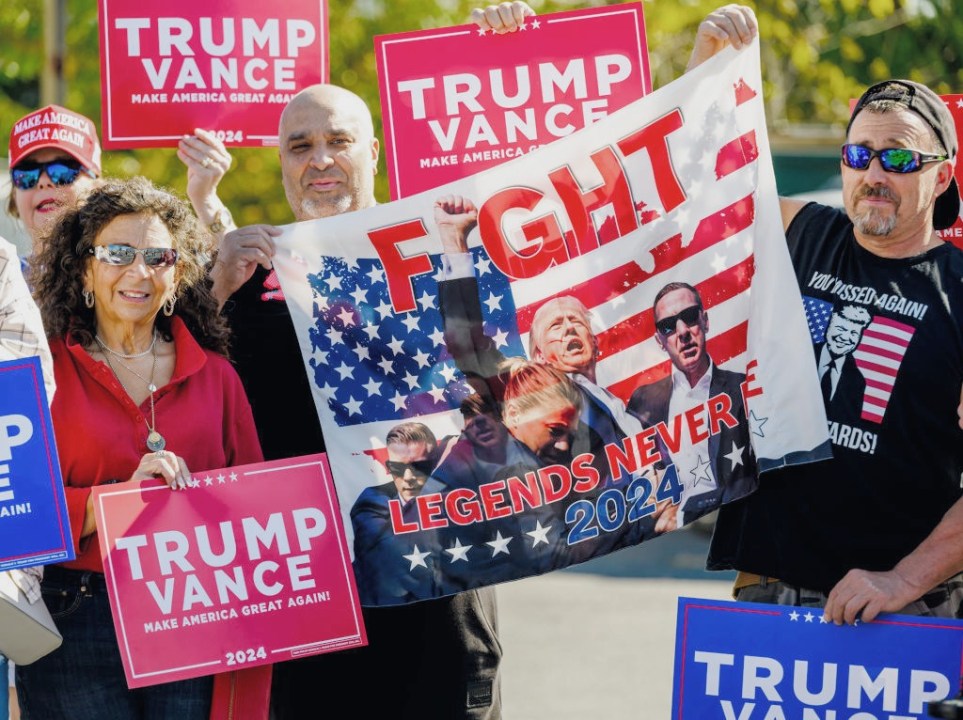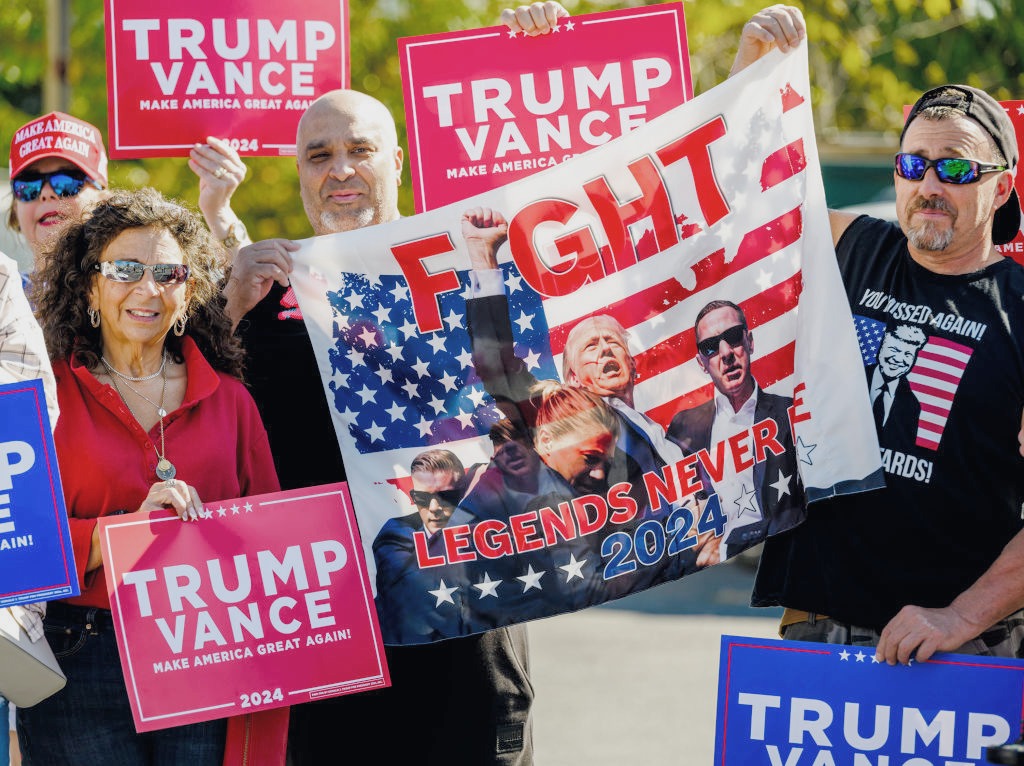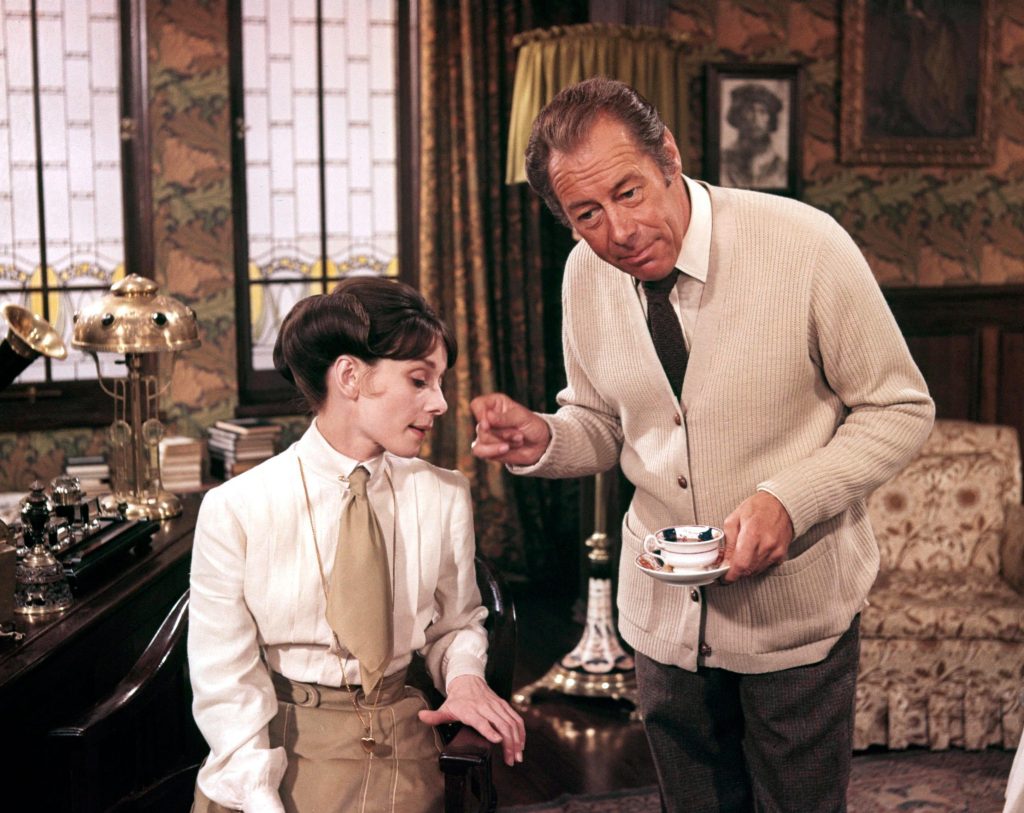I have spent the past week travelling across ‘swing country’. Namely Pennsylvania and Ohio – two of the crucial states which will decide the coming US election. The former is important for the presidential race, the latter for control of the Senate. I spent time following a pollster, joining interviews and focus groups.
The first stop was an affluent Pennsylvania suburb near Allentown. In 2020, the county (Lehigh) broke for the Democrats in a closely contested race – the party won just 53 per cent – and it is often seen as a bellwether for the national mood. In the suburb I met Rebecca and her family. Their sprawling bungalow-style home is a pitch-perfect slice of upper-middle-class America, a Norman Rockwell painting brought to life. But despite the polished floors and the wholesome golden retriever, all is not well in this patch of America.
Rebecca’s family, like so many others, is deeply divided over the election. Where they used to pride themselves on their ability to hash these things out in a debate over the dinner table, she tells me a chilly truce has now descended which reflects the strength of feeling on all sides. ‘We just can’t talk about this stuff anymore. It’s not worth the fight.’
It’s impossible to conceive of organised, widespread conflict
Rebecca herself is still undecided. Having voted Biden in 2020, she previously favoured RFK Jr, intrigued by his interest in preventative and alternative medicine (since rebranded ‘MAHA’ – Make America Healthy Again). RFK has now joined Team Trump, and when Rebecca is pushed to weigh up her vote, she says: ‘I would hold my nose and say 60/40 Trump. But that’s a real 40 for Harris.’
So what is Trump’s appeal to someone like Rebecca? ‘The main reason: safety’. Rebecca is persuaded that US support for Ukraine, a key Biden policy position, is taking the world to the brink of nuclear war. ‘Nuclear war is scary, and we’re close. We need peace through strength.’ That outweighs the importance of women’s rights, something she knows the Harris campaign is pushing on ads every night: ‘If we’re all blown to smithereens, we won’t have abortion rights to worry about.’
What could still change her mind? ‘If [Trump] says something really stupid, or does something unforgivable in the next couple weeks.’ Yet if Rebecca is leaning 60 per cent for Trump, with everything he has said and done to date, I suspect it would take something extraordinary to turn her.
Rebecca hasn’t said all this to her family, but they sense which way she is leaning. Her horrified mother urges her to ‘think of [her] grandmother, and all the women in her family who came before’. Rebecca understands the sentiment but resents this attempt at what she sees as emotional blackmail.
And the rest of the family? Rebecca’s husband, a successful real estate investor, strongly backs Trump. He admires Trump’s business background and force of personality. The events of 6 January 2020 are brushed away: ‘There are two sides to every story.’
The couple’s early-twenties sons are for Trump, as are all their friends. I am more surprised to hear her daughter Chelsea, visiting home from Columbia, say that the first female president ‘has to be a strong woman. And I don’t know how strong Kamala is!’ If Kamala is failing to win over Ivy League educated women in New York, then how well can she perform next week?
Driving to Rebecca’s house, row after row of houses with neatly manicured front lawns sport Trump and Harris signs, with support varying even between neighbours. What is it like to have longstanding friends and acquaintances turn into mortal enemies? ‘This area’s as purple as they come, and you know where everyone stands. People are civil, but you don’t talk to each other in the supermarket anymore.’ There are no signs on Rebecca’s lawn.
At a focus group of Trump voters in Columbus, Ohio, a seven-hour drive away from Allentown, many of the sentiments are familiar. These are the people Trump needs to turn out on the day – and, at least on the surface, they are hesitant. There is widespread disgust at some of Trump’s more… colourful past comments, especially among women, though the strength of feeling is muted compared to previous years.
Still, Republican tribal loyalty – and attraction to Trump’s personal charisma – remains strong. Nicole, a middle-aged woman wearing an extravagant felt hat, starts the session as the most vocal Trump sceptic of the group. By the end, she concedes that she’s certain to vote Republican regardless. Flummoxed by the apparent cognitive dissonance, she shrugs: ‘I’m a Republican, I’ve always voted Republican and that’s what I’m going to do.’ Even as the assembled Ohioans express near-universal disapproval of Trump’s moral character, I observe that they still like some of his personal qualities: ‘He’s a business man and he gets the job done. We were better off under Trump.’
Since we are only an hour away from Springfield, Ohio, the moderator asks what everyone thought Trump’s infamous comments in the second presidential debate (‘They’re eating the dogs!’). There is a wall of rolled eyes, and Kevin says that the press generated by Trump’s overblown statements distracts from America’s real problems. Some people think that Trump is an (over)correction from the increasingly radical Democrats, especially on immigration, and hope that a sensible ground somewhere between the parties can be found.
The truism says that the people take Trump seriously, but not literally. This is also the best way to understand the more far-fetched fantasies of his supporters. Kevin, a quality control technician and armchair constitutional scholar, off-handedly remarks that it’s ‘50/50’ whether the country will descend into civil war. Across the table, Steve, a local farmhand, nods enthusiastically with a crooked smile. ‘This guy might be a little right-wing even for me’, whispers the Republican strategist to my left. But hearing these amiable Midwesterners cheerfully discussing such an awful prospect, it’s impossible not to conclude that this is more of an escapist day-dream than a realistic prospect.
Driving back, we at last reach the Appalachians, ablaze with autumnal glory. The deeper you get into the mountains, the larger the billboards for Trump. You can drive for many miles before seeing a single sign for Harris.
I end up at Gettysburg. This was the bloodiest battlefield of the civil war, with thousands of Union and Confederate soldiers killed over three days of brutal fighting. Is it really plausible that we could see open conflict on fields like these again today?
No. It feels to me like a morbid fantasy which both sides of the aisle choose to indulge for different reasons. To Republicans, it is a (metaphorical) call to arms and the logical endpoint of ‘Stopping the Steal’. To the Democrats, it is a useful bogeyman, a stick with which to beat faltering voters into line, as when Harris described January 6 as the ‘worst attack on democracy since the Civil War’. The truth is that while Americans today may believe themselves to be more divided than ever before, in practice their civic norms remain strong. Even at the gun ranges, the posters may all be Republican – and often as funny as they are cheeky – but the staff and patrons are friendly, sober people. In the UK these guys would probably spend their free time painting Warhammer figurines.
Antebellum America split along clear state lines and the defining issue of slavery, but there is no equivalent to that today. While America undoubtedly faces serious problems (whoever wins the White House), its fractured politics and culture wars touch on many topics with no clear link to geographical identity. It’s impossible to conceive of organised, widespread conflict at the state or regional level. Even the far-right QAnon/‘militia’ movement has shown precious little sign of taking violent action since the 2020 Capitol insurrection.
In lieu of actual violence, many Americans continue to view a vote for Trump as an alternative form of protest against a status quo which they perceive to have failed. This may form the bedrock of a quiet, yet powerful, surge of support for Trump that will make itself heard at the ballot box come November.
Whatever happens, I suspect civil war will stay where it belongs: in the history books.








Comments